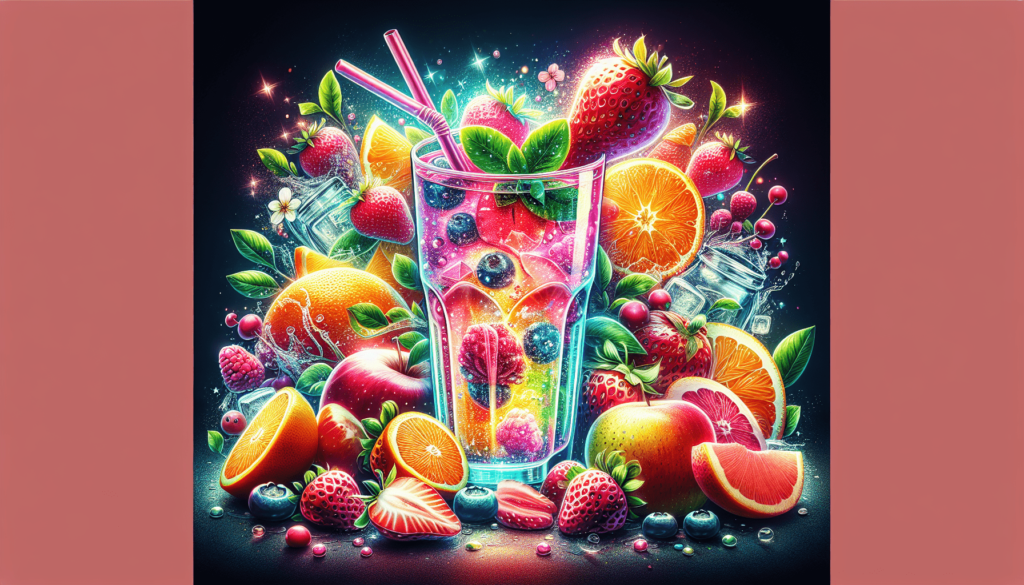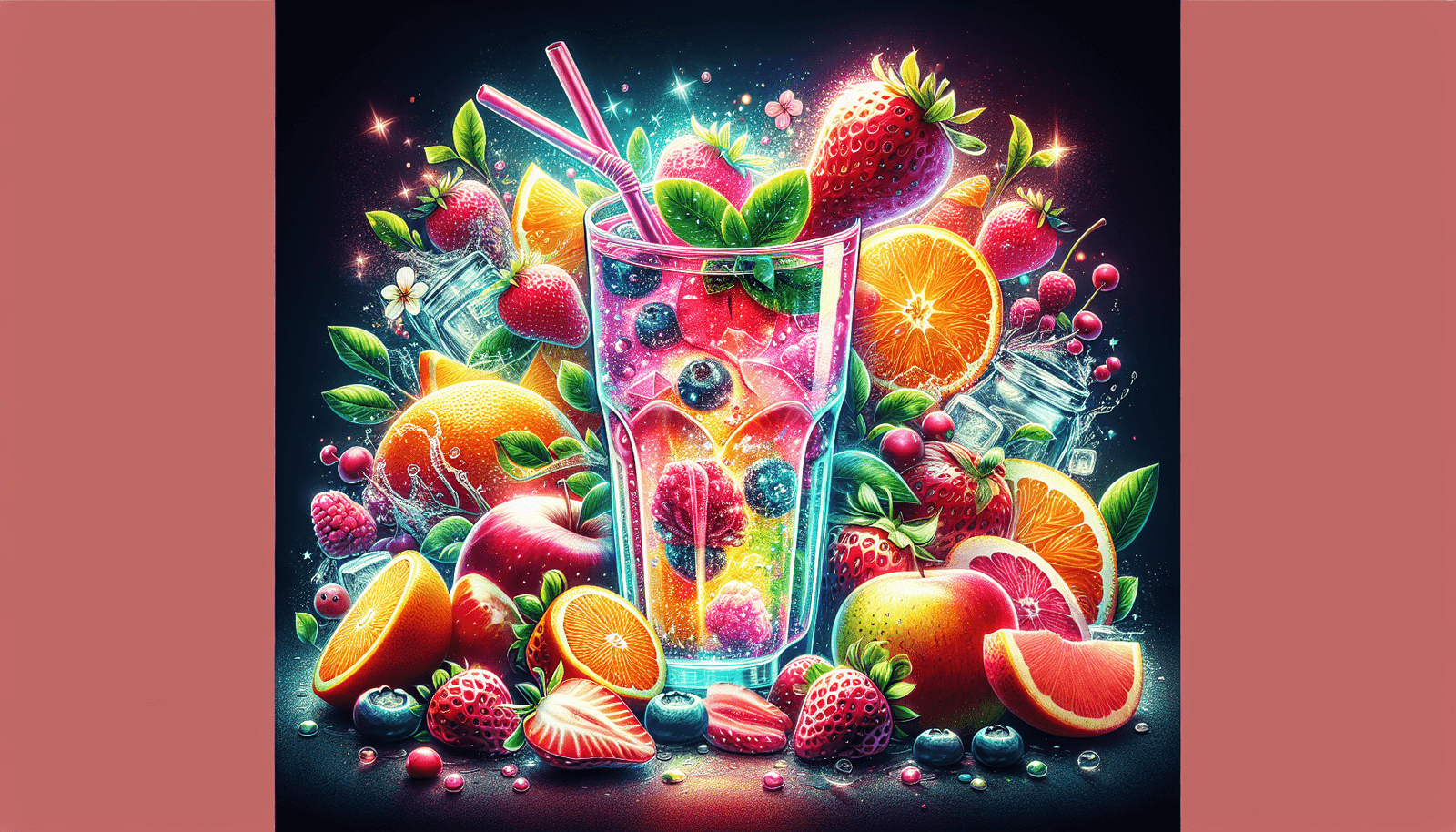Are you looking to incorporate intermittent fasting into your lifestyle but worried about feeling low on energy? Look no further! In this article, we will explore the best intermittent fasting drinks to keep you energized throughout your fasting period. Whether you prefer something warm and soothing or refreshing and cold, we have got you covered. Say goodbye to sluggishness and hello to a revitalized you!
Water
We all know that staying hydrated is important for our overall health, but it becomes even more crucial when you’re practicing intermittent fasting. Water is the ultimate fasting drink as it has zero calories and does not break your fast. It is essential for keeping your body hydrated and functioning optimally throughout the fasting period.
Drinking enough water during intermittent fasting has numerous benefits. It helps to flush out toxins from your body, aids in digestion, and improves nutrient absorption. When you’re fasting, water can also help to suppress hunger pangs and reduce cravings, making it easier to stick to your fasting routine.
So how much water should you drink during intermittent fasting? The general rule of thumb is to consume at least eight 8-ounce glasses of water per day. However, individual needs may vary depending on factors such as your weight, activity level, and climate. It’s always best to listen to your body and drink when you feel thirsty. Remember, staying well-hydrated is key to a successful intermittent fasting journey.
Green Tea
Green tea is not only delicious but also a fantastic beverage to include in your intermittent fasting routine. Packed with antioxidants, it offers a wide range of health benefits. The combination of catechins, a type of antioxidant, and caffeine found in green tea can help boost your metabolism and enhance fat burning. This makes it an excellent choice for those looking to shed a few extra pounds while fasting.
In addition to its fat-burning properties, green tea also helps to control hunger cravings. The catechins present in green tea interact with the hunger hormone leptin, making you feel more satisfied and reducing the urge to snack unnecessarily. It’s a wonderful way to stay on track with your fasting goals.
However, it’s essential to be mindful of the caffeine content in green tea, especially if you’re practicing fasting that restricts calorie intake. Excessive caffeine intake may have a slight impact on fasting, so consider opting for decaffeinated green tea if you’re concerned about staying in a fasted state.

Black Coffee
For many people, a cup of black coffee is the go-to drink to kickstart their day – and for a good reason. Black coffee provides a natural energy boost and mental focus, making it an excellent fasting companion. The caffeine in coffee stimulates your central nervous system, giving you a much-needed energy lift during your fasting window.
In addition to its energy-boosting effects, black coffee can also increase your metabolism and promote fat oxidation. This means that it can help your body burn stored fat more efficiently, which is an advantage for those practicing intermittent fasting for weight loss.
Furthermore, black coffee helps to suppress appetite, making it easier to stick to your fasting protocol without succumbing to hunger pangs. Just remember, if you’re concerned about caffeine’s impact on your fasting goals, opt for black coffee that is free from any additives or sweeteners.
Herbal Tea
If you’re looking for a fasting drink that is both soothing and beneficial for your health, herbal teas are an excellent choice. They come in a variety of flavors, each offering unique health benefits. For example, chamomile tea is known for its calming properties, making it an ideal choice for relaxation and stress reduction. Peppermint tea, on the other hand, can aid digestion and soothe an upset stomach. Ginger tea has anti-inflammatory properties and can help alleviate nausea and improve digestion.
One of the great things about herbal teas is that they have little to no calories or caffeine, making them a perfect choice for those strict fasting windows. You can enjoy unlimited cups of herbal tea throughout the day without worrying about breaking your fast. They can be a comforting and hydrating option to keep you going on your fasting journey.

Bone Broth
Bone broth has gained popularity in recent years for its numerous health benefits, and it can be a valuable addition to your intermittent fasting routine. Made by simmering animal bones and connective tissues for an extended period, bone broth is rich in nutrients and amino acids like collagen, glucosamine, and gelatin.
One of the significant advantages of consuming bone broth during fasting is that it can help curb hunger and cravings. The protein and collagen content in bone broth can make you feel more satisfied and reduce the temptation to indulge in unhealthy snacks. It’s a fantastic option for those who struggle with fasting-induced hunger.
Additionally, bone broth supports gut health by promoting the growth of beneficial gut bacteria and improving digestion. It can also provide essential nutrients for the health of your skin and joints, contributing to an overall sense of well-being. Just ensure that the bone broth you choose is free from any additives or additional ingredients that may break your fast.
Apple Cider Vinegar
Apple cider vinegar has long been praised for its numerous health benefits, including its potential to enhance weight loss. When consumed during intermittent fasting, apple cider vinegar can help improve digestion and promote blood sugar control. It provides a feeling of increased satiety, making it easier to manage your appetite during fasting periods.
To incorporate apple cider vinegar into your fasting routine, add a tablespoon of it to a glass of water and drink it before or during your fasting window. This can help support your weight loss goals and provide additional health benefits like reducing bloating and improving gut health. Just remember to choose raw, unfiltered, and unpasteurized apple cider vinegar for maximum benefits.
Coconut Water
If you’re looking for a natural, electrolyte-rich drink to stay hydrated during intermittent fasting, coconut water is a fantastic choice. It is naturally packed with essential minerals like potassium and magnesium, making it an excellent option to replenish your electrolyte levels.
Coconut water is not only hydrating but also provides a source of energy without interfering with your fasting schedule. It contains natural sugars that can give you a boost when your energy levels are low, especially during longer fasting periods or intense workouts. However, be mindful of the calories in coconut water and opt for unsweetened varieties to ensure you’re not breaking your fast unintentionally.
Lemon Water
Lemon water is a refreshing and hydrating drink that can be enjoyed during intermittent fasting. It offers detoxifying and alkalizing properties, helping to cleanse your system and maintain a healthy pH balance in your body. Starting your day with a glass of warm lemon water can kickstart your metabolism and aid digestion. It’s a simple and inexpensive way to support your fasting goals.
In addition to its detoxifying properties, lemon water can also help suppress appetite, making it easier to stick to your fasting schedule. However, it’s essential to consume lemon water in moderation as excessive acidic intake can have negative impacts on your tooth enamel. Dilute lemon juice in water and consider using a straw to minimize contact with your teeth.
Vegetable Juice
Freshly made vegetable juices can be a nutritious and satisfying option to keep you energized during fasting windows. Packed with vitamins, minerals, and antioxidants, vegetable juices provide a concentrated dose of nutrients in a delicious and easily digestible form.
The low calorie content of vegetable juices makes them suitable for fasting, and they can provide a much-needed energy boost without breaking your fast. They can be especially helpful for those who struggle to consume enough vegetables during their eating windows. Just ensure that you use primarily non-starchy vegetables like leafy greens, cucumbers, and celery to keep the sugar content in check.
Infused Water
If you find plain water mundane and struggle to meet your daily hydration needs, infused water can be a game-changer. You can add natural flavors to your water by infusing it with sliced fruits, herbs, or vegetables. This not only enhances the taste but also provides additional health benefits.
Infused water is both refreshing and hydrating, making it an excellent choice for intermittent fasting. You can experiment with various combinations like cucumber and mint, lemon and ginger, or berries and basil to find your favorite flavors. Just be sure to avoid adding any sugars or artificial sweeteners as they can spike your insulin levels and break your fast.
In conclusion, while intermittent fasting can be challenging, incorporating these fasting drinks into your routine can help keep you energized and satisfied throughout your fasting windows. Remember, always listen to your body and choose drinks that align with your fasting goals. Stay hydrated, nourished, and enjoy the journey towards a healthier and happier you.

